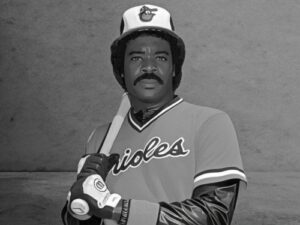Whitey Herzog, a legendary figure in Major League Baseball, passed away on April 16, 2024. Known affectionately as “The White Rat,” Herzog left an indelible mark on the game, particularly through his innovative strategies that prioritized speed and defense. His unique approach not only redefined team dynamics but also led to significant success on the field, including a World Series championship in 1982 with the St. Louis Cardinals.
Early Career and Philosophy
Whitey Herzog began his baseball career as a player in the 1950s, but it was his acumen as a manager that made him a household name. After stints managing the Texas Rangers, California Angels, and Kansas City Royals, Herzog took the helm of the St. Louis Cardinals in 1980, a role he held until 1990. It was here that his strategies became legendary.
Herzog’s philosophy was simple yet revolutionary: “The key to winning baseball games is pitching and defense,” he said. At every stop in his Hall of Fame managerial career, Herzog diverged from the then-dominant trend of sluggers who dominated the game. He instead focused on building teams that excelled in speed and defense.
The era of “Whiteyball”
Under Herzog, the Cardinals transformed into one of the most dynamic teams in baseball history. They were built around speed, sharp baserunning, and stellar defense, which became their hallmark and Herzog’s legacy. “We may not out-slug you, but we’ll out-run you, out-think you, and out-play you,” Herzog once remarked. This approach shifted the MLB landscape to a style of play that had been overshadowed by the power-hitting era of the 1970s.
Herzog’s teams were known for their aggressive base-stealing, superb bunting, and hit-and-run tactics. This emphasis on speed was epitomized by players like Vince Coleman, who stole over 100 bases in each of his first three seasons, and Ozzie Smith, whose defensive prowess and speed made him a nightmare for opposing teams. Herzog’s strategy proved that a team could be constructed differently and still achieve great success, leading the Cardinals to three National League pennants (1982, 1985, and 1987) and a World Series victory in 1982.
Impact and Legacy
Whitey Herzog’s impact on baseball was profound. His strategies influenced how teams were constructed and how managers approached the game. Former player and manager Joe Torre, who later led the New York Yankees to four World Series titles, once said, “Whitey played a different game than the rest of us. He played a game that put constant pressure on you, and he always seemed two steps ahead.”
Cardinals catcher Ted Simmons, reflecting on Herzog’s impact, noted, “He changed the way the game was played. With Whitey, you were always gearing up for the speed game, which made you vulnerable in other areas he was ready to exploit.”
Tributes and Reflections
Upon the news of his passing, tributes poured in from all corners of the baseball world. Commissioner of Baseball Rob Manfred stated, “Whitey Herzog was a true innovator in our sport. His legacy of creativity and excellence leaves an enduring impact on the game.” Similarly, Hall of Fame third baseman George Brett, whom Herzog managed in Kansas City, reflected, “He was more than a manager; he was a teacher. Whitey’s understanding of the game was unparalleled.”
Herzog himself, always modest about his accomplishments, once said in an interview, “I just played my guys to their strengths and tried to keep them positive. Baseball is a simple game. You throw the ball, you catch the ball, you hit the ball. Sometimes, the simplest strategies are the best.”
Whitey Herzog’s death reminds us of the end of an era for Major League Baseball, the age of “Whitey Ball.” His innovative approach to the game, focusing on speed and defense, not only brought his teams great success but also influenced how the game is played at a fundamental level. His strategies and management style are studied in baseball circles worldwide, and his philosophy of maximizing player strengths remains a guiding principle for managers today. Herzog’s legacy is not just in the pennants his team won but in the vibrant style of play he championed, which continues to resonate in the annals of baseball history.






